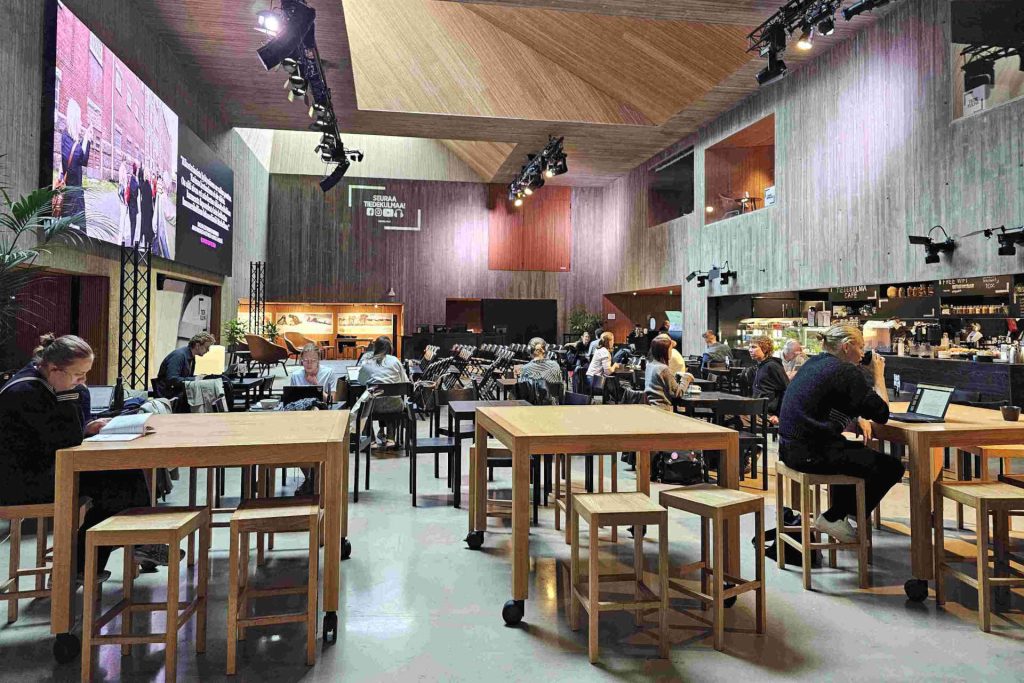
Communal catering is facing major challenges: Due to the increase in home office days, less food is being consumed in company canteens. On office days, however, employees’ expectations of the quality and ambience of the food are rising. This presents employers and caterers with financial and logistical hurdles, but also opens up opportunities for repositioning.
Communal catering is increasingly being used as part of the employer brand to retain and attract talent. Some companies, such as Google and SAP, cover the costs completely or rely on partnerships with neighboring restaurants or food courts that are used by several companies.
Sustainability and regionality are increasingly in demand, but many employees still opt for classic, often less healthy dishes such as pizza, currywurst, schnitzel and pasta. Digital solutions such as pre-ordering via QR code or automatic billing of goods via camera and direct billing to the employee account are already standard in canteens and make them pioneers in digitalization.
Service stations, petrol stations, train stations and airports are undergoing a transformation in the field of transport catering. In rural areas, petrol stations are increasingly replacing supermarkets and serving as local suppliers. Large providers such as McDonald's are planning to expand their presence. The multinational convenience store chain 7-Eleven (focus: vending, stores & smart stores at train stations and airports) is planning to enter the German market and is currently operating in Copenhagen as a test market.
Sustainability and practical packaging solutions also play an important role here, although the packaging law poses challenges. In the future, even reusable tableware and porcelain for in-house consumption could play a greater role. Overall, it is clear that catering and packaging concepts need to be rethought in order to meet changing working and living habits.

Organic is not a label – it’s an attitude. In Falkenstein, Lower Austria, the Pesau winery practices organic farming as a generational contract: for the soil, for the landscape, for the wine. A conversation with Andreas and Georg Pesau about living origin, sustainable craftsmanship and the courage not to bow to every trend.
Summer tourism in Austria is experiencing an upswing – but not without challenges. Between geopolitical uncertainty, climatic changes and changing guest needs, the industry has to reinvent itself. Why “coolcation”, intentional travel and retreat offers will make the difference in the future – and how a hotel on the Arlberg is already serving as a role model.
Barbecuing remains the Austrians’ favorite discipline, as the latest barbecue study 2025 shows. The younger generation in particular is rediscovering the grill for themselves: trend-conscious, internationally inspired and with a focus on taste, quality and sustainability. Read on to find out which barbecue trends will be particularly popular in 2025 and what restaurateurs can take away from them.


Communal catering is facing major challenges: Due to the increase in home office days, less food is being consumed in company canteens. On office days, however, employees’ expectations of the quality and ambience of the food are rising. This presents employers and caterers with financial and logistical hurdles, but also opens up opportunities for repositioning.